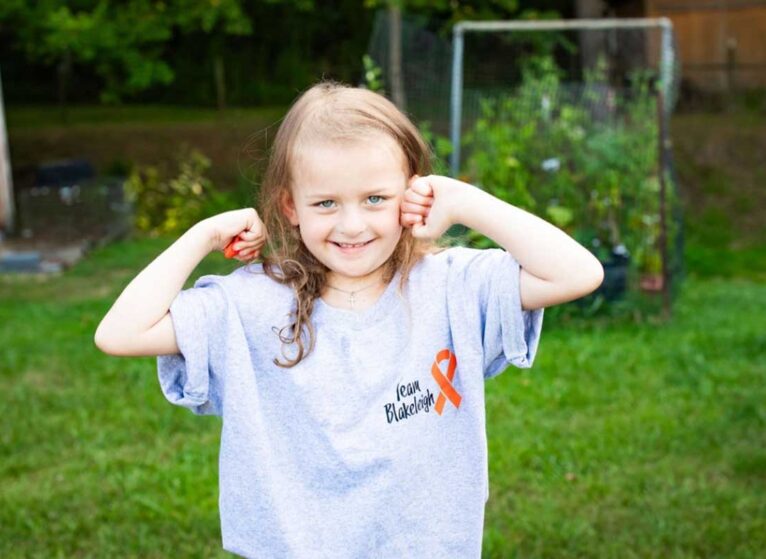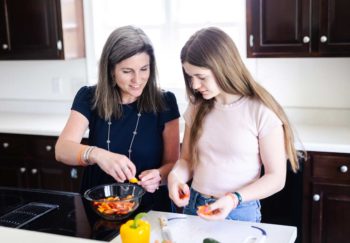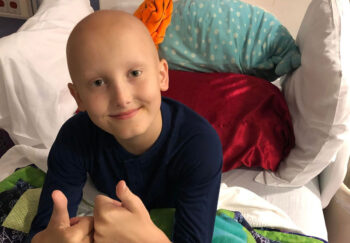What do you say to a 5-year-old child when she has ALL? You keep it simple. For Julie Phillips, this meant telling her daughter, Blakeleigh, that she was sick and would be in the hospital for a while.
As a mother, though, nothing felt simple. She'd brought her daughter in for high fevers. To find out Blakeleigh had cancer was "heartbreaking."
Fast forward to today, and Julie's bursts with gratitude for her daughter's health. The team at UVA Health Children's made sure that Blakeleigh felt comfortable and unafraid while going through treatment. Everyone involved feels positive and hopeful that Blakeleigh will get better and better. Watch her story for more.
Julie Phillips: Blakeleigh is very smart. She's very intelligent. She's.... she's a people person. She never meets a stranger.
Emily Moses, MD: So I first met Blakeleigh, and she was admitted because she was having recurrent fevers, and we couldn't figure out why.
Julie Phillips: So, they'd done every test under the sun. Me and dad both stayed every night. We never left her.
Emily Moses, MD: Our general pediatrics team actually did a very extensive workup for an infection. We weren't really finding anything, so we went ahead and,... the diagnostic thing you do is a bone marrow biopsy to look for those leukemia cells. And we did that.
Julie Phillips: We stayed in here for 2 weeks before they found out that she had the leukemia. We come in here with high fevers and come out with cancer... like it was... heartbreaking.
Does Your Child Have Cancer?
Sometimes, it's hard to know when to worry.
Emily Moses, MD: So, patients who have ALL, the leukemia cells, where it's made in the bone marrow, crowds out the normal cells that are made there. So when the bone marrow can't make those red blood cells and platelets, then you have symptoms of low red blood cells, so anemia.
Julie Phillips: She was 5, so she really didn't understand. All, you know, we could say was, you know,” you're sick and we have to be at the hospital for a while, and you're going to have to take medicine for a while.” I mean, they make her feel like she's safe here. She, you know, she's not scared to come here to do her treatments. They... they make it easier.
Whitney Perdue, RN: It's great to see Blakeleigh and see her come into clinic and come over and give me a hug.
Emily Moses, MD: She is doing really well with treatment. We still see them monthly for the first year, and we'll see her life, life-long.
Whitney Perdue, RN: The fact that she keeps coming for lab checks and we do all those follow-ups, that's all a positive. So it'll get less and less that we see her. And that's a good thing.
Julie Phillips: Hopefully, we only have 3 more months left of treatment. We're praying we get there and.... that'll be it. Looking at her, you wouldn’t know anything was wrong with her. She's just like a normal child.


